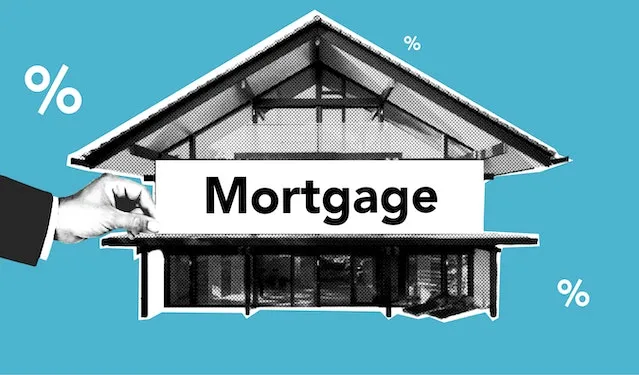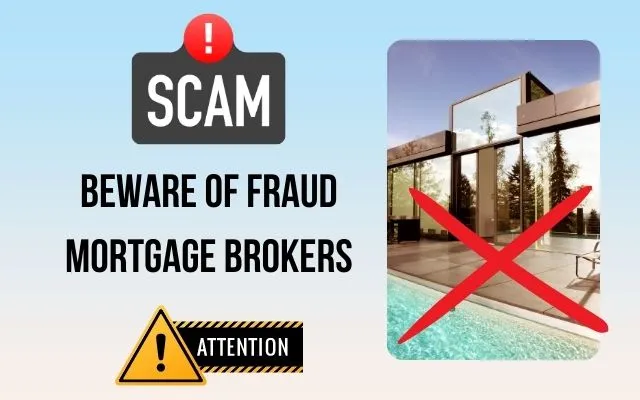
How to Make Money on Cash App in Minutes? 2023 Guide!
Table of Contents Are you a hustler? Are you someone who is always looking for an opportunity to make some quick bucks on the sideline?
Are you planning to buy a home but worried about financing? Then it would be best if you avail yourself of a mortgage broker to help you connect with a lender. Instead of doing everything yourself, taking the help of a mortgage broker can significantly improve your financing experience.
However, it would help if you also remember that some brokers might want to manipulate your lack of knowledge. They will surely take advantage of the process if you have yet to learn the process.
Don’t worry! You have come to the right place. Here, we lay down the 7 most obvious ways how mortgage brokers rip you off. Once you review the list, you will be better positioned to protect yourself and negotiate the deal.
If your mortgage broker offers guaranteed approval for your mortgage application, that should be your number 1 red flag.
Even in a perfect world where you meet all the requirements of a mortgage, your application may not be approved as it is the lender’s prerogative.
You may think you have successfully met all the criteria, but your application may still get rejected.
The broker may implement a scamming technique where they would entice you with their lofty promises and motivate you to apply for mortgage loans from different lenders.
It comes at a price, as each time you for a new application to a different lender, the mortgage broker charges his service fees.
However, it would be best to remember that even after applying for a mortgage to so many different lenders, it may get rejected by all of them.
So, suppose a broker promises you the impossible task of 100% guaranteed approval of your mortgage application.
In that case, it is confirmed that you are being taken for a ride by that mortgage broker.
You should immediately cut all ties with that broker and go for a more reputed and reliable mortgage broker.
The amount of mortgage loan you are approved will decide how much the mortgage will earn from this deal as they are paid a percentage of the loan amount as commission.
So, if a mortgage broker is dishonest and wants to take advantage of you, they can push you to accept a loan you may find difficult to repay.
Always remember their job ends when the lender accepts the mortgage loan application. The entire liability is yours only, as this is just a job for them, and they will move on to the next client.
It is a ubiquitous method of how mortgage brokers rip you off. Even if you can afford to repay the loan, don’t settle for what these brokers tell you.
Sometimes, the brokers implement a technique called “Steering,” where they will slyly ask you to go for a subprime mortgage even if you are eligible for a prime loan.
Subprime mortgages are remarkably more expensive as they are meant for clients with bad credit scores who don’t meet the criteria.
So, do a thorough requirement analysis and only insist on the mortgage amount you need, not the maximum amount you can get or a subprime mortgage they try to enforce.
If the broker persists, take a second opinion and change the broker.
No hard and fast rule; only licensed mortgage brokers can operate in this field, but an unlicensed mortgage broker means TROUBLE.
In a rare scenario, an unlicensed mortgage broker may perform better than a licensed broker. However, the best option is to go for a licensed mortgage broker, as that gives you the option to approach the governing body in case of discrepancies.
Also, check the licenses and permits thoroughly, even if they claim they are licensed. Please thoroughly research and check for online reviews from trusted platforms to ensure their authenticity.

You will be surprised how mortgage brokers rip you off with hidden fees they don’t initially disclose.
Most mortgage brokers are essentially salesmen with excellent oratory skills. They will instill confidence in you and motivate you for a mortgage loan but alas, many only focus on their benefit instead of the customer.
It often happens when brokers charge a fee that seems perfectly fine, given the current market standard.
Still, as you progress and apply for a mortgage, you will see additional charges being added for different services that were not previously agreed upon.
As discussed earlier, they may motivate you to apply for multiple loans and charge a service fee for each one. They may add other hidden charges not discussed at all, essentially changing the terms of the agreement without your consent.
So, be vigilant, discuss all kinds of fees beforehand, and take it in writing if necessary so that no hidden charges are involved.
An important thing to be careful about is the penalties associated with the mortgage prepayment. There are many mortgages where you must pay the penalty if repaying before the agreed timeline.
These prepayment penalties have to be mentioned in the loan documents as per law by the lender, but since they are usually in fine print and most people overlook them.
They later discover it when trying to repay the loans before the scheduled time.
Another instance is that the broker offers you a desirable interest rate and fast mortgage approval.
However, you later learn about additional fees that make it more expensive than the ones that quoted the highest interest rate. It is known as bait and switch. So ensure you get the loan estimate and understand the mortgage rates.
Sometimes, even after the mortgage is approved, they may continuously ask the clients to flip the loan and refinance the current mortgage with other lenders with the promise of a better deal.
This loan flipping is another way how mortgage brokers rip you off by getting commission from the new lenders through mortgage refinancing.
Even the type of property can significantly affect the cost of refinancing. Additional fees like closing costs and fees are also burdened on the borrowers they are unaware of.
A broker who has only the intention to make more money and does not care for their clients may not guide them in the right direction and not make them aware of these penalties and undisclosed information.
These mortgages, which charge prepayment fees, provide a discounted interest rate as the client agrees to pay the penalty, but even this is hidden from clients by a rogue broker.
So, you must do your due diligence and discuss the prepayment fees following the advice of the Consumer Financial Protection Bureau.
Check other undisclosed information and mortgage terms with the broker and read everything thoroughly before signing.
Usually, when you take the professional help of a mortgage broker, an agreement is signed upon his commission or professional fees. In most cases, it is a small percentage of the total mortgage amount.
Usually, the lender pays the commission directly to the broker, and that amount is also taken into account in the loan.
However, there are cases where the borrower agrees to pay the mortgage brokers, usually a predetermined fixed amount.
Usually, this fee is paid after the deal is closed and not before that. Sometimes a small initiation fee is taken, but a significant chunk of the payment, if done by the borrower, is done after the closure of the mortgage.
A situation may arise where the mortgage broker asks for a significant portion of the remaining or full payment before closure.
It is a red flag, and the broker is probably scamming you as not an ethical mortgage broker would do this.
Be wary of such requests and remind him of the signed agreement. If the broker continues to pester you for payment, cancel the agreement through the proper channel, and get a better-reputed broker.
As a borrower, it is essential to understand the difference between APR and Interest Rates and what your lender is seeking.
On a very high level, APR stands for Annual Percentage Rate, and it denotes the cost of a loan to a borrower that includes all kinds of fees, extra charges, discount points, origination fees, private mortgage insurance, etc., apart from the interest rate.
Interest Rates, on the other hand, denote the interest on the loan. It is for this very reason interest rates are cheaper than APR.
Mortgage brokers are legally obliged to disclose information about mortgage rates to you.
So stay vigilant and check this point thoroughly, as choosing the wrong method may significantly increase your mortgage payment.
A Mortgage Broker is a person that may represent a company or be a freelancer that acts as an intermediary between the borrower or the person who is seeking mortgage financing for buying a home and the lenders who will lend the money for that purpose.
A legitimate and reputed mortgage broker looks out for the borrower’s best interest. They collect all the necessary and relevant information about the client and then match them with the lenders that offer the best mortgage options.
They ensure that you experience a smooth mortgage process and get the appropriate mortgage, paying the best interest rate to ensure that you can make the monthly payments and avoid foreclosure.
However, there are always bad actors, i.e., unethical mortgage brokers, and hence people should always double-check everything before agreeing to anything.

Mortgage brokers, be they a freelancer or from a brokerage firm, usually work on a commission basis.
They usually charge 1% to 2% of the total loan amount as the commission fees. So, the fees are not fixed for every borrower and depend on the loan amount. Hence their fees increase if the value of the loan increases.
They are mainly paid in two ways: cash or an addition to the loan balance. When the borrower agrees to pay the brokers, they usually pay the cash at the deal’s closure.
If the lender pays the brokers, the amount is usually added to the loan amount for which the borrower is liable, and then the lender pays the broker directly.
Different brokers charge different percentages, and they have different fee structures. Hence, it is of utmost importance that the borrower clearly understands all their fees before signing the deal.

Must Read:
Some other scams that are prevalent in the mortgage industry are as follows:
Many fraud mortgage and real estate companies are always looking to scam people.
They pose as genuine real estate agents, sometimes even faking the licenses with a proper office. That is why it’s imperative to do due diligence and get proper reviews about your broker beforehand.
Always ask for their license and permits and crosscheck them before agreeing to anything. Even if you cannot do an initial investigation, do a thorough checkup of the lending partner.
Check with the lender’s customer care regarding these agents and enquire about their authenticity and if they are registered partners of that lender.
It’s always better to be cautious and make a thorough checkup so that you don’t become a victim of these fraudsters.
Scammers are always on the lookout to find their next victim. Suppose you are a first-time home buyer, and these scammers, who usually pretend to be mortgage brokers, get a hint of that and approach you.
Then these smooth talkers convince you, and after the initial chatter, when the trust is established, they ask for money before the closure is done. It is not expected from a legit broker. So, stay alert and protect yourself from such scammers.
Some scammers may mail you a payment link or ask you to wire money to their account, posing as brokers or real estate agents.
Always check with your broker and thoroughly check the account details before wiring any money upfront. Once sent, it’s tough to recover, so be careful of the telltale signs, poor English with wrong grammar, unknown email id, asking for an unknown fee, etc.
Sometimes when scammers pose as mortgage brokers, they may exhibit aggressive behavior and push you constantly to settle for a mortgage. Even if they are legit, they care about their money and nothing else.
Stay from such agents and look for a better agency or a licensed individual broker.

There are many ways to know if a mortgage broker is reputable or whether the broker is associated with fake mortgage companies.
They are as follows:
Check the license of the mortgage broker and the relevant authority to know that the broker is legit. Dishonest mortgage brokers will always try to avoid producing licenses or presenting fake ones.
Try to choose a broker from a reputed firm with a lot of experience, good reviews, and feedback because buying a home is a substantial financial commitment.
An unknown and unethical broker may try to take advantage of you by getting the most expensive loan and then add additional costs, such as application fees, appraisal fees, etc., later.
Do a comparative study of all the best brokers and the associated mortgage products in your area, and then choose the one that fits your requirement.
You can also seek suggestions from friends or family who have taken a broker’s service and had a good experience.
Based on a study by Freddie Mac, borrowers save significant money($1500 to $3000) when they compare 2 to 5 mortgage brokers.
An official form from the U.S. Department of Housing and Urban Development called GFE, or Good Faith Estimate, provides all the essential information regarding the loan and the associated cost.
It is a vital thing that most reputed brokerage firms provide to customers as soon as they apply. Avoid brokers who don’t give these on time and look for a reputed firm.
When applying for a mortgage, always remember Credit Rating and Credit Scores play a significant role in Mortgage and Interest Rates. Look for a different broker if a broker downplays the credit score angle.

Also Read:
1. The most essential advantage is that brokers are aware of the mortgage process so that you can relax, and they will complete all the tasks till closure. | 1. some brokers only care for money and nothing else, so they may look out for the client’s best interest and offer them a more expensive and less favorable loan. |
2. They have an extensive network of lenders, giving many loan options. They can do thorough research and find the lender best suited to the type of mortgage the borrowers need. | 2. Taking brokers’ service involves a fee that needs to be paid. A reputed broker may charge a hefty fixed fee or a commission which may sometimes significantly increase the overall mortgage cost. |
3. Most broker firms have a great rapport with lending companies, and they can always negotiate with them to waive specific fees and avail discounts for their client and offer the best loan terms, which ultimately benefits them in reducing their loan costs. | 3. There are a lot of fraud and dishonest brokers out there doing unethical practices. Victims often lose substantial amounts of money dealing with such mortgage frauds. |
The most frequently asked questions are as follows:
7 Ways to Know if a mortgage lender is ripping you off are as follows:
It is entirely a personal decision. Mortgage brokers have a great network of lenders and usually smoothen the process for the borrowers. However, you can avoid them if you feel you are getting a better offer by dealing with the lender directly.
To not get ripped off, do the following:
The high turnover rate has always been an issue in the mortgage industry. Many experts have concluded that the annual turnover rate at the national level in the USA is 30%, with some newer companies having a rookie turnover of as high as 60% to 80%.
We hope that you understand how mortgage brokers rip you off. If you follow our guidelines and always stay vigilant, no one can exploit you.
Remember, no one cares about you or your well-being as you would. Hence, it is always a good practice to thoroughly check everything and be assured as buying a home and taking a mortgage is a life-changing financial commitment.
Disclaimer: The information provided in this article is for informational purposes only and should not be construed as financial advice. The author’s opinions are their own and should not be taken as a recommendation to invest in any particular product or service. It is strongly advised that you consult a financial advisor before making investment decisions. Investing always carries risk, and it is up to each individual to consider their options and make informed choices carefully.
Share this post:

Table of Contents Are you a hustler? Are you someone who is always looking for an opportunity to make some quick bucks on the sideline?

Table of Contents Annabella Rockwell net worth is $5 million approximately. However, no official data is available regarding how much she earns or the wealth

Table of Contents Kaleb from Shriners net worth is $3 million approximately. Kaleb has had a tough life because of his illness, but he never